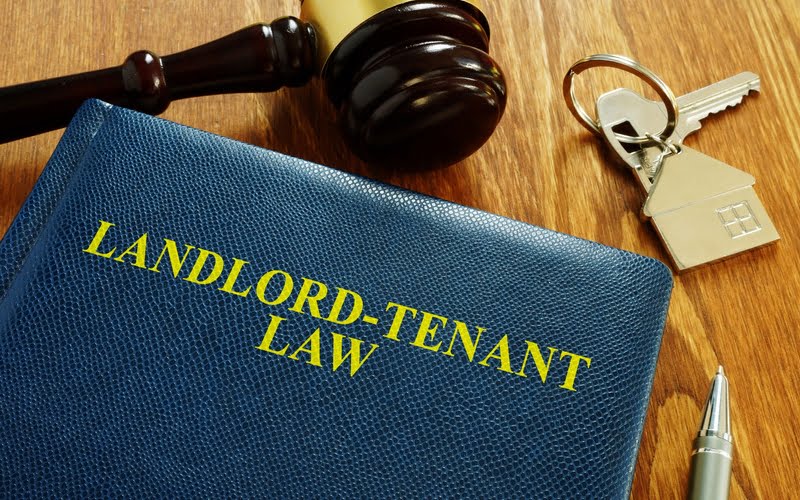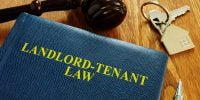Last Updated on March 18, 2024 by Kelvin Nielsen
If you’re a tenant in Delaware, you may be wondering whether you can withhold rent if your landlord fails to make necessary repairs. The answer is yes, but only under certain conditions.
Delaware law allows tenants to withhold rent or use the “repair and deduct” method if their landlord fails to address crucial repairs.
However, before withholding rent, you must provide written notice to your landlord detailing the repairs needed and giving them a reasonable amount of time to make the repairs. If the landlord still doesn’t make the repairs, you can then withhold rent or use the repair and deduct method.
It’s important to note that tenants can only withhold rent for necessary repairs that affect habitability, such as a lack of heat or hot water, not for minor repairs.
Understanding Rent Withholding in Delaware can be a bit tricky. While it’s important for tenants to know their rights, it’s also important for landlords to understand their obligations. Landlords in Delaware are required to maintain their properties and provide habitable living conditions for their tenants.
Failure to do so can result in legal action against the landlord. It’s important for both tenants and landlords to understand their rights and obligations under Delaware law to avoid any potential legal issues.
Key Takeaways
- Delaware tenants can withhold rent or use the “repair and deduct” method if their landlord fails to address crucial repairs.
- Before withholding rent, tenants must provide written notice to their landlord detailing the repairs needed and giving them a reasonable amount of time to make the repairs.
- Landlords in Delaware are required to maintain their properties and provide habitable living conditions for their tenants.
Related Posts:
- Can I Sue My Landlord in Delaware? A Guide to Tenant Rights
- Can You Break Your Lease Early in Delaware? A Guide to Lease Termination
- How Much Can a Landlord Raise Rent in Delaware?
Understanding Rent Withholding in Delaware
If you are a tenant in Delaware, you may be wondering if you can withhold rent for certain reasons. Here is what you need to know about rent withholding in Delaware.
Legal Grounds for Withholding Rent
According to the Delaware Residential Landlord-Tenant Code, tenants have the right to withhold rent if the landlord fails to make necessary repairs that affect the tenant’s health and safety. The tenant must provide written notice to the landlord and allow 48 hours for the repairs to be made. If the repairs are not made within 48 hours, the tenant may withhold rent until the repairs are made.
Procedure for Withholding Rent
Before withholding rent, the tenant must provide written notice to the landlord specifying the repairs that need to be made. The landlord then has 20 days to make the necessary repairs. If the landlord fails to make the repairs within 20 days, the tenant may withhold rent until the repairs are made.
Consequences of Improper Withholding
Tenants who improperly withhold rent risk eviction and legal action from their landlord. If a tenant withholds rent for reasons that are not legally justified, the landlord may terminate the lease and pursue legal action to recover the unpaid rent. It is important for tenants to follow the proper procedures when withholding rent to avoid legal consequences.
Related Posts:
- Delaware Lease Termination Law
- What Rights Do Tenants Have in Delaware?
- What a Landlord Cannot Do in Delaware
Tenant and Landlord Obligations
As a tenant in Delaware, you have certain responsibilities to uphold in order to maintain a positive relationship with your landlord. One of your primary obligations is to pay rent on time. This means that you must pay your rent in full and on the date specified in your lease agreement. Failure to do so may result in late fees or even eviction.
Tenant’s Responsibilities
In addition to paying rent on time, you are also responsible for keeping the rental property in good condition. You must maintain cleanliness and avoid causing damage to the property. You are also responsible for promptly reporting any health and safety violations to your landlord.
Landlord’s Responsibilities
Landlords in Delaware have a number of obligations to their tenants. They must provide a safe and habitable living environment, which includes providing heat and hot water. They must also make necessary repairs to the property and address any pest control or mold problems in a timely manner.
Landlords are also required to disclose certain information to tenants, such as any rent control laws or required landlord disclosures. Additionally, they cannot discriminate against tenants based on protected characteristics under the Fair Housing Act.
Related Posts:
- Are Landlords Responsible for Pest Control in Delaware? Explained
- How Long Does a Landlord Have to Fix a Mold Problem in Delaware?
Disclosure: The content herein isn’t a substitute for advice from a professional attorney. It’s only meant to serve educational purposes. If you have a specific question, kindly seek expert attorney services.
Sources: Residential Landlord-Tenant Code, CHAPTER 53. Landlord Obligations and Tenant Remedies

Amanda Rose is a seasoned landlord with 13+ years of expertise in overseeing diverse properties. Her adept management spans single and family homes, along with multi-family apartments and condos, across Wyoming and South Dakota. Her commitment and proficiency have cemented her status as a thriving property management professional.
She is a member of the following organizations: Wyoming Landlord’s Association, National Association of Residential Property Managers (NARPM), Wyoming Apartment Association, South Dakota Multi-Housing Association (SDMHA), and South Dakota Landlord Association (SDLA).







